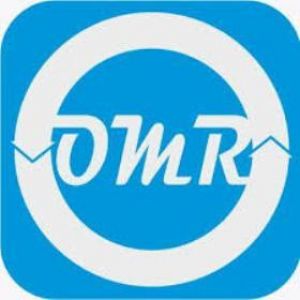Global IoT Market Research and Forecast, 2018-2023Posted by Orion Market Research on September 10th, 2018 Why is the world so obsessed with all the latest technological advent in the society? Is it really worth the efforts? Is it a scientific breakthrough? All the inquisitee building up will be cleared by the end of this article. Internet of Things (IoT) that is what it is called is a connected society where machines and people changing into things that communicate. Hard right?! No, it isn’t. It’s as simple as talking to your friend or relative with the difference being they are not living things, an instance for a generic understanding as it’s supposed to be. What’s the catch? Life becomes easy or we become potato couch. Apart from these, IoT has its technical benefits that would put today’s internet flagship transmission standards to shame like 1 Gbps bandwidth with virtually no latency. All these are just a drop in the ocean when we think of IoT. Browse full report at: Global IoT Market Government round the globe emphasis more on this future but soon to be mainstream technology as the direct benefit is to the economy and people in it. E-commerce, e-governance, decrease in inflation (macro and micro economics benefits) and so on and so forth. This makes governments round the world to drool over the worthiness of IoT and a planned launch to embrace IoT would be mid 2019 to early 2020. Government’s have been pro-active to regarding the push for IoT as this would help bolster machine learning, blockchain and AI, in the process making an all in all progressive development for IoT market. Government regulations and initiatives have a major role in fuelling the growth of IoT market. The government focuses on implementing smart services as a major part of their infrastructure, not only in developed, but also in developing economies. The deployment of IoT solutions in the US plays a major role in government infrastructure that help in the growth of country. Federal government, as an instance, has implemented smart building applications for the reduction of cost and for promoting smart services. General Services Administration (GSA) started a smart building initiative in May 2012 to modernize federal government buildings in large part through connected technologies making them more energy efficient. Under this project, thousands of low-cost connected sensors were installed 50 of the government’s most energy intensive buildings. The sensors could collect a minimum of 1,000 data points relating to energy use and operational efficiency per building. As per the estimation by GSA, this initiative resulted in million of annual savings. Such initiatives that could significantly cut the cost fuel the growth of IoT market. Moreover, the government in the US is investing considerable amount in various projects and initiatives to make the country smarter than before. For an instance: The White House in September 2015, announced to invest more than 0 million in ‘Smart Cities’ internet of things (IoT) initiative. This investment would be used in 25 different projects that would be utilizing Big Data and analytics aiming at reducing traffic crime and fight crime, enhancing economic growth and improving delivery of local services. To process Big Data over cloud there has to be bridge to process the former from the latter and that platform is IoT. Emerging economies such as India, China, Japan, Dubai and many more are also implementing different IoT strategies for smart development of their economy. As an instance: China in 2012, started leading national smart city development for promoting the use of the latest technology such as IoT and artificial intelligence. Furthermore, government in the country has also introduced its “Internet Plus” strategy which integrates the country’s mobile internet, IoT and cloud computing, big data initiatives for promoting the extensive application of IT and smart technologies. Moreover, Dubai recently announced its IoT Strategy in October, 2017 which seeks to build the advanced IoT ecosystem in their country to improve people’s lives. This strategy has been aimed to protect Dubai’s digital wealth as well as it also encourages government departments to join the emirate’s smart transformation. Additionally, its other objective is to achieve the objectives of the Smart Dubai Plan 2021 for transitioning to a 100% paperless government. The country’s IoT Strategy unifies the data sources for the Dubai Pulse platform which was launched in April 2017 to serve as a central platform for compilation of all data available to both the public and private sectors. Similar initiatives have been promoted by governments in Taiwan, Malaysia, Australia and many more. All these initiatives are promoting the adoption of smart home systems and smart services in their countries and playing major role in growth of the IoT market. This embedding of IoT into the society would one day become a part and parcel of every human’s life and that is inevitable. Apart from empowering individuals as people in the society, it has also empowered things and brought them to life; just imagine your clothes reminding you to wash them, or your car telling you when to service it (using AI and Machine learning) or your home saying its time to conserve electricity. All this would be possible only with IoT in our lives, come let’s have a peek into the future. For related reports: ICT Industry Like it? Share it!More by this author |


